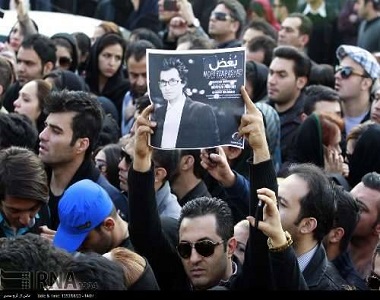Islamic State of Iraq and Syria militants claimed they beheaded U.S. aid worker Peter Kassig in video, Agence France-Presse reported.
The 26-year-old former U.S. soldier was paraded at the end of an ISIS video released in October that showed the murder of British aid worker Alan Henning.
Britain and the United States said they are analyzing the video to confirm the authenticity of the video.
“We are aware of a further video and are analyzing its contents. If true this is a further disgusting murder,” said the spokeswoman for British Foriegn Office said.
Kassig's parents said Sunday they were awaiting official confirmation on the death of their "treasured son."
"We are aware of the news reports being circulated about our treasured son and are waiting for confirmation from the government as ... to the authenticity of these reports," Ed and Paula Kassig said in a statement.
The same video showed the gruesome simultaneous beheadings of at least 18 men described as Syrian military personnel, the latest in a series of mass executions and other atrocities carried out by ISIS.
“This is Peter Edward Kassig, a U.S. citizen of your country," said a black-militant wearing a balaclava, the same outfit worn by the man who beheaded two American journalists and two British aid workers in earlier videos.
The man stood over a severed head bearing a resemblance to Kassig, a former American soldier who risked his life to provide medical treatment and aid to those suffering from Syria's civil war.
“Here, we are burying the first American crusader in Dabiq, eagerly waiting for the remainder of your armies to arrive,” the militant said.
Dabiq is the site of a major 16th century battle in what is now northern Syria that saw the Ottomans defeat the Mamluks and begin a major expansionist phase of an empire the ISIS group considers to have been the last caliphate.
The United States has been conducting airstrikes targeting ISIS militants in Iraq and Syria.
It is believed that hundreds of ISIS militants have been killed so far with reports emerging last week of the group’s leader serious wounds following a U.S.-led airstrike.
The aid worker took on the name of Abdul-Rahman Kassig after converting to Islam, before his capture.

